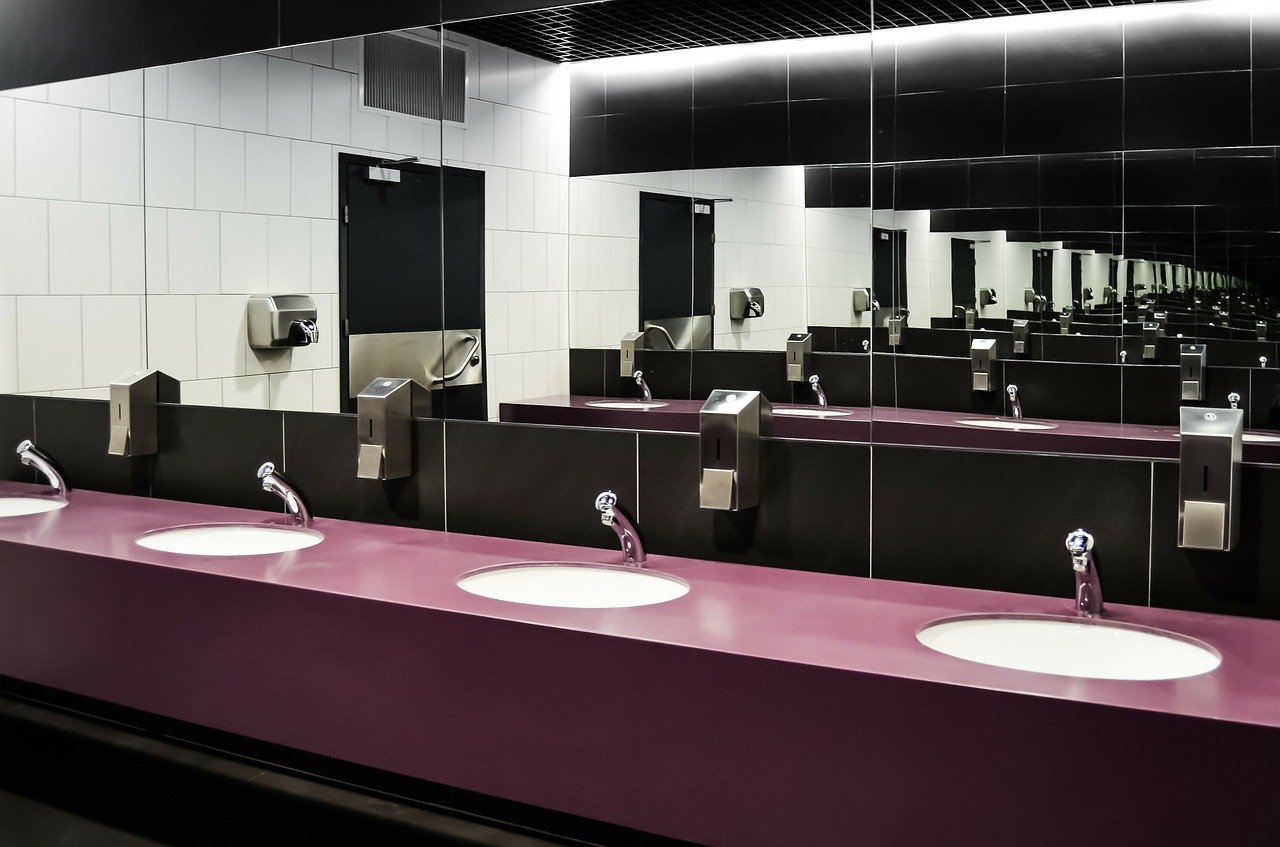One of the stars of The Irishman, a 3 1/2 hour movie with Al Pacino and Robert De Niro, said, “…just go to the bathroom before it starts…” Now, as we end pandemic lockdowns and reopen theaters, stores, and stadiums, we need to resolve restroom problems.
Resolving (Coronavirus) Restroom Problems
Coronavirus worries converge in the restroom. Many of us are concerned with social distancing, airborne germ droplets, and sanitizing hands and surfaces. Whether it’s a drive-in theater, an outdoor music festival, or a restaurant with curbside dining, the establishment needs a restroom policy.
One drive-in theater owner said she was increasing the number of portable toilets. But still, the lines would be a problem. Meanwhile, in public restrooms, a high speed hand dryer could spread COVID-19 droplets. Enclosed stalls are a worry because those droplets can be virulent for eight minutes. We also might have sinks that are too close and infected surfaces we all touch.
The solution is expensive retooling. McDonald’s said that with touchless sinks and sensor-activated towel dispensers, the cost of a restroom renovation could exceed $25,000. A group that oversees beach restrooms said they would be charged $250 for the cleaning they want to repeat every 90 minutes.
Our Bottom Line: Spillover
The economic term spillover seems uniquely appropriate for tracking the connection between lockdown reopening and the public restroom. Defined as the positive or negative impact on unrelated third parties, the spillover from a restroom flows to economic growth.
At movie theaters, ball games, parks–wherever we share public space–we depend on restrooms. According to Slate, a California water use textbook tells us that a typical office worker flushes the toilet somewhere between 2 and 3 1/2 times a day. In restaurants, half of all diners use the facilities.
As we reopen, accelerated economic activity will require a new kind of restroom. When we are willing to leave home to see a three hour movie, we create a spillover through the employees theaters hire, the popcorn they sell, and the movie studios they support.
My sources and more: During a family dinner discussion, I learned that restrooms were a big reason that the summer music festivities in Tanglewood could not open. From there, The Washington Post and Slate confirmed their plight.
Our featured image is from Pixabay.






